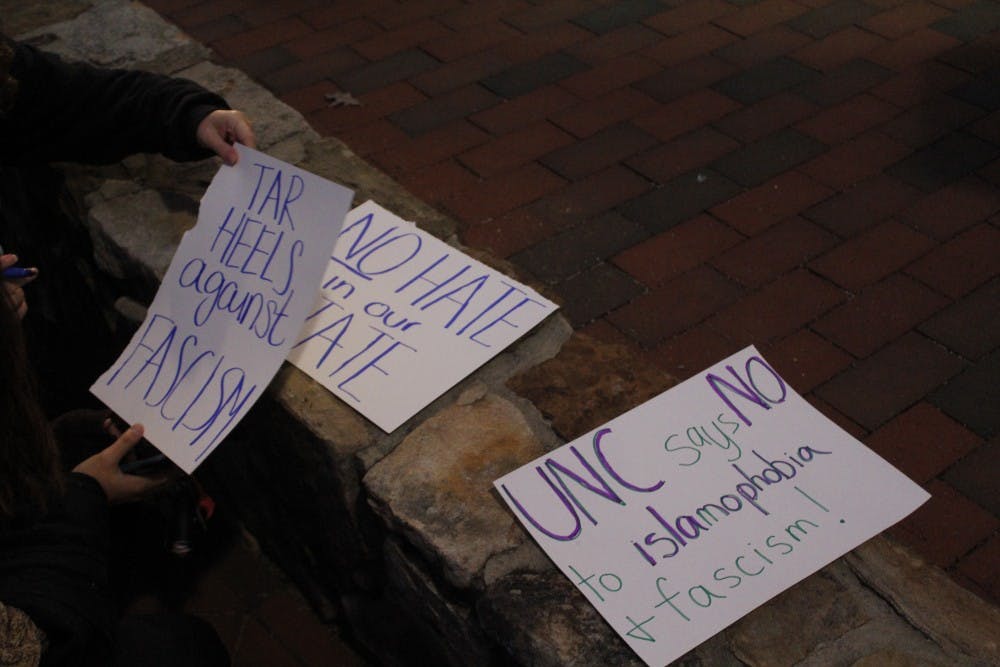Although a December study by the Foundation for Individual Rights in Education ranked North Carolina best in the nation for campus free speech, debate continues over the controversial free speech policy adopted by the UNC Board of Governors on Dec. 15.
Laura Beltz, a policy reform program officer at FIRE, said in an email FIRE awarded its green light rating to eight institutions in North Carolina — more than any other state — based on a database that rates the policies regulating expression at both public and private colleges and universities in the United States.
These institutions include UNC, Appalachian State University, Duke University, East Carolina University, N.C. Central University, UNC-Charlotte, UNC-Greensboro and UNC-Wilmington.
“Policies that clearly and substantially restrict free speech get a red light rating, policies that are so vague that they could be too easily applied to restrict free speech get a yellow light rating and policies that do not imperil free speech at all are awarded our green light rating,” she said.
The controversial BOG policy came about as a result of House Bill 527, which required the BOG to adopt a new free speech policy.
A draft of the policy released in November sparked discussion about whether or not the proposed sanctions were too harsh. Beltz said the draft presented two options regarding sanctions for disruptive conduct, one requiring mandatory suspension for two offenses and the other allowing the institution to choose a different sanction.
“FIRE argued that mandating suspension after two offenses could lead to abusive application and punishments that were unduly harsh,” she said. “Fortunately, the Board of Governors went with FIRE's preferred option."
In a November statement, the American Civil Liberties Union of North Carolina criticized the proposed policy's broad language and extreme punishments, including suspension and expulsion.
"It broadly defines what type of behavior will be considered disruptive and ultimately runs the risk of punishing protest activity that is protected by the First Amendment," the statement said.



